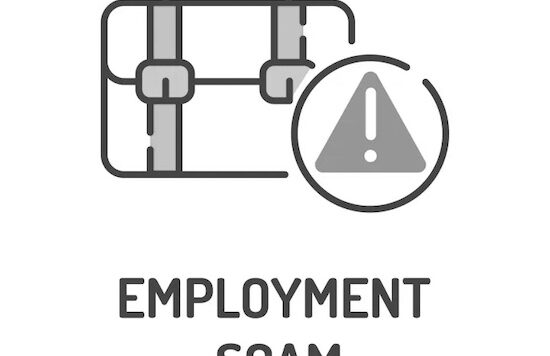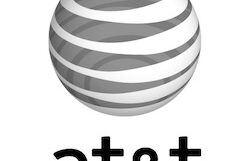Job Posting Scams – Don’t Get Got!
There is a feeling you get when you see the perfect job online. Better pay. Better working conditions. Better location. Better use of your skills. Everything you been looking for. And the scammers know it!
Get this. In the United States the work force is in the middle of what has been labeled “The Great Resignation.” So many Americans are dissatisfied with their job, the work environment and even their co-workers that they are simply walking away. There is a massive number of people re-thinking their career and professional work life balance. How bad is it? Right now there over 15 million job openings. Business Insider reported that there are more job openings than people looking for work.
Now how would a scammer take advantage of that situation? First of all job posting scams are everywhere. Any place you can find job listings you find scam postings. That includes Indeed, LinkedIn and many others. But what are the scammers looking for? Information. Personal information that can used to rip you off for your money and identity. The more personal information they can get from you the better. It can get ugly.
A fake job posting, properly executed by real professional scammers, can extract every bit of vital information from an applicant including name, date of birth, social security number, bank accounts, credit reports, mother’s maiden name and a helluva lot more. This is as dangerous a scam as you will find.
How do they do it?
The scam usually works just like any other hiring process. The first step to getting scammed is the job listing that makes it seem so perfect for you. You may want to stop and take a long look at the job posting. Keep in mind that if it seems to good to be true it probably is. Is the salary a bit much for the job? Is the required skills and experienced a bit too easy to fulfill? How about the location and benefits? Oh it just seems so right! So you submit a resume.
Next step. The scammer now have your name, address and other contact information. You may receive a follow up email thanking you for applying. Professional scammers are careful, methodical, patient and well practiced. It may be a week or two before you hear from them or you may get a call or email the same day.
Here is why you may get a call immediately. The scammer will tell you that the there is an urgent need to fill the position and you are the most qualified candidate. In one example a scammer told a victim that if they don’t fill the position immediately they could be fired! Keep in mind that many scammers will claim to represent legitimate companies as recruiters. They may also ask that you not contact the company directly because they will just refer you back to them. Scammers think of everything.
So the scammer has added urgency to the formula to get you hooked into the scam. They will ask a few rudimentary question or even conduct a full on interview. It is not uncommon for the applicant/victim to be emailed a job offer right away. Now you are excited and ready to move forward,. The scammer will add a little more to the scam by offering you a hiring bonus if you complete the pre-employment screening…today! Or in the next few days. The sum may be just a few hundred dollars or even thousands of dollars. But ask yourself again; is this too good to be true?
The gotcha!
The victim is offered a hiring bonus if they can complete the pre-employment hiring process quickly. The scammer asks you for a copy of birth certificate or driver’s license or passport to prove you are a U.S. citizen. They ask for your social security number for payroll purposes. They ask for banking information for direct deposit. They ask for the names of your children and spouse for the benefits package. The may ask for a copy of or permission to view your credit report. Then you never hear from them again…until!
The scammer has everything they need to take over your life. They clean out your bank accounts, get credit cards and identification in your name, they apply for loans and buy expensive items all with your credit. The have seriously F*CKED YOUR LIFE UP! It is not un-common and could easily happen to you.
Identity theft from phony job postings are on the rise and they can be almost any kind of job. The FTC has listing of common job scams. But that list is just an short example of job scams. In reality any job you come across could be scam.
How to avoid job scams?
First of all know when something is too good to be true. If the salary seems outrageous and the benefits are outta this world then you should be immediately on alert for a scam. Next, you need to understand that no employer is going to hire you on the spot with no background check or professional qualification verification. Legitimate companies and recruiters may have an urgent need but they are also very cautious and will do their homework before offering you a job. Forget what the scammer may tell you about contacting the company directly. A website search will tell you if that company is hiring for that position. It may tell you who to contact and almost always have a way for you to submit a resume. If they are using a recruiter your resume will go to them. Verify! Verify! Verify!
Verify that the recruiter is working with the company. Check if they have a website, a LinkedIn page, or a Facebook page, Check their reputation.
Do not perform any task for your potential employer without a damn good reason and a written agreement. These are sometimes called “working interviews.” That includes forwarding mail or packages, cashing checks, writing up contracts, or any work project. Your employer may invite you into the office for few hours or day to work with the team in order gauge your skills. Not unusual. But sometimes its just away to get some free labor out of applicants. Do nothing for free and if you do make sure you have a written agreement clarification about the work and how it will be used in the hiring process. And do not hesitate to charge for your work.
Check out: How to Spot a Scam Job Posting.
Now you know.






